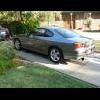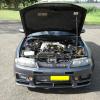I am so farkin pissed off!!!!!!!!
Announcements
-
Similar Content
-
Latest Posts
-
By PotatoCake · Posted
Even back in the day, some importers were renowned for bringing in crashed cars, giving them a quick touch up + respray and making them look mint -
By PotatoCake · Posted
No new updates from the op after covid, hopefully everything is ok... -
By PotatoCake · Posted
Very informative post, thanks for the details!





Recommended Posts
Create an account or sign in to comment
You need to be a member in order to leave a comment
Create an account
Sign up for a new account in our community. It's easy!
Register a new accountSign in
Already have an account? Sign in here.
Sign In Now